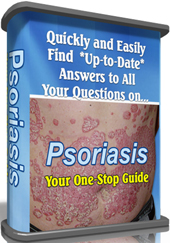
Present Power
October 10, 2010
Renegade Traffic Tactics
October 10, 2010Psoriasis is an unrelieved provocative non contagious skin and joint disease that affects our immune system. The white blood cells (T-cells) become over-stimulated and it commonly causes red crusty dry patches (also called psoriatic plaques or lesions) to emerge on the skin because of the excessive skin production. The skin reacts just the same with the fungus infection. Researchers believe that inheritance, atmosphere, and the immune system may also play a primary role in psoriasis.
If you have psoriasis it will affects your immune system results an abnormally hasty skin cell cycle and usually itchy and feel sore. The process of having psoriasis begins at the bottom layer of the epidermis, where keratinocytes are completed. Keratinocytes are juvenile skin cells that fabricate keratin, a strong protein that helps the structure of hair, nails and skin.
Generally, skin cells that are produced in the deepest layers of our skin make their way to the outside in just a week or less. They are full-grown, that sloughed off the skin, and replaced with novel skin cells from underneath. Our skin cannot get rid of these cells as much as necessary speed, so they fabricate up and doing, leading to chunky, dry patches, or plaques, silvery, crumbling areas of dead skin.
Personal Use Only






